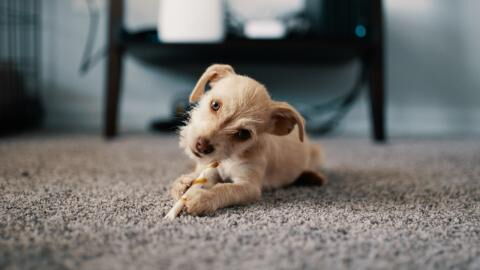As humans, we grieve when we lose a beloved family pet, whether it’s a dog, a cat or something else, the loss is hard. According to a study released in the journal Scientific, dogs also grieve when a fellow pet dies.
Discover our latest podcast
Dogs also grieve
An international team of animal behaviourists surveyed 426 dog owners in Italy, and all the participants owned at least two dogs, often one of which died while the other was still around.
The study showed that almost 90% of owners reported a change in their dog's behaviour. Lead author Stefania Uccheddu, a veterinarian at San Marco Veterinary Clinic in Viggiano, Italy, explained to CNET, that the most common behavioural changes noticed were increased neediness, a decrease in appetite and playfulness.
Uccheddu also noted that the length of grief could vary from months to years depending on the dog’s bond with the dog that passed. The team managed to separate the owners’ feelings from their dogs’ changed behaviour so they wouldn’t project their own grief thanks to a team of psychologists.

Read more:
⋙ This is why your dog is such a picky eater, according to vets
⋙ This is why you shouldn't walk your dog everyday
⋙ Depression: How to tell if your dog is depressed and how you can help
How to help your dog grieve
Uccheddu did note that the owner’s reaction to their own grief can affect the remaining dog. If the owner reacts with anger, depression or trauma, the remaining dog will act more fearful according to the study.
Uccheddu said:
Dogs are social animals, any time they don't have a member of the pack anymore, their entire routine changes.
If you want to help your dog grieve the loss of the other, you ‘need to ensure there's predictability in their days and continue to share activities with them’ according to Uccheddu. You should also let your surviving dog sniff the one that passed so they know it has died.
Uccheddu explains:
If seeing the corpse is part of the death ritual, considering that domestic dogs have no access or only a brief access to the corpse, then only the reaction to separation from the bonded individual might be evaluated.















